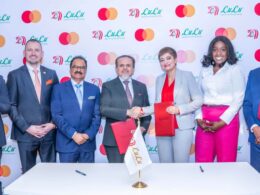EFM, a forest investment and management firm, has signed a landmark long-term agreement with Meta to deliver 676,000 nature-based carbon removal credits by 2035. The deal, among the first of its kind, will fund the transition of 68,000 acres of forestland on Washington’s Olympic Peninsula to climate-smart forestry, to sequester over one million tonnes of carbon emissions over the next decade.
The Olympic Rainforest, once used primarily for timber production, will now be managed under EFM’s FSC-certified climate-smart approach.
“This long-term agreement enables us to manage forests for their greatest societal value—enhancing carbon storage, supporting biodiversity, and working alongside tribal communities, all while producing sustainable timber,” said Bettina von Hagen, Chief Executive Officer of EFM. “Meta’s early commitment was instrumental in unlocking a pioneering strategy that integrates carbon finance with forest acquisition and management.”
EFM’s approach diversifies forest income streams by integrating carbon credits and conservation easements alongside traditional timber revenues. It aims to nearly double timber stocks over 15 years while improving forest health, water quality, and habitat for endangered species, including wild Pacific salmon. Public recreation, trail connectivity, and cultural harvesting with local Indigenous tribes—namely the Quileute and Hoh—will also be prioritised.
The agreement was finalised in parallel with the acquisition of the forestland by Olympic Rainforest LLC, a new entity created by EFM. The purchase was supported by EFM’s investment funds and third-party investors, including the Natural Capital Fund, managed by Climate Asset Management. The fund has raised over $1 billion globally for nature-based and carbon investment projects.
Martin Berg, CEO of Climate Asset Management, said: “We founded this firm to lead the charge in natural capital investing. Collaborating with EFM and Meta on this groundbreaking contract demonstrates what’s possible when bold partnerships align to deliver climate, nature, and community benefits at scale.”
For Meta, the deal plays a key role in meeting its target of achieving net zero emissions across its value chain by 2030. “We back high-impact carbon removal projects,” said Tracy Johns, Carbon Removal Lead at Meta. “EFM’s robust track record in sustainable forestry made them an ideal partner, aligning with our commitment to climate action and community resilience.”
Restoration and Resilience at Scale
The Olympic Rainforest, a 68,000-acre temperate coastal rainforest adjacent to Olympic National Park—a UNESCO Biosphere Reserve—is uniquely positioned for conservation at landscape scale. The project offers:
- Over one million tonnes of carbon removals: The site already stores an estimated 10 million tonnes of CO₂. EFM’s improved forest management plan aims to add more than one million tonnes of carbon removals within ten years, making it one of the largest nature-based projects in the Pacific Northwest.
- Long-term sustainable timber production: Enhanced management will increase timber stocks, improve quality, and extend harvest rotations, ensuring ecological and economic resilience.
- Conservation corridor potential: The acquisition contributes to a 150-mile conservation corridor stretching from Hood Canal to the Olympic Coast, impacting nearly 5 million acres of surrounding lands.
- Biodiversity and salmon restoration: The forest supports six Endangered Species Act-listed species. EFM will work with the Wild Salmon Center to improve salmon habitats, ensuring greater climate resilience for wild salmon and steelhead.
- Tribal engagement and ecological co-management: The project will create opportunities for collaboration with local tribes on wildlife protection, cultural harvesting, and ecological restoration.
- Public access and tourism: EFM plans to enhance recreational access, connecting the land to major trail systems such as the Olympic Discovery Trail and the Pacific Northwest National Scenic Trail.
“The Olympic Rainforest is a linchpin for wild salmon and steelhead conservation in the continental US,” said Guido Rahr, President and CEO of the Wild Salmon Center. “We’re proud to continue our partnership with EFM to expand our impact across this vital landscape.”
With this precedent-setting deal, EFM and Meta are redefining how carbon finance can facilitate transformative, climate-smart forestry—delivering benefits that reach far beyond carbon removal, into communities, ecosystems, and generations to come.
















